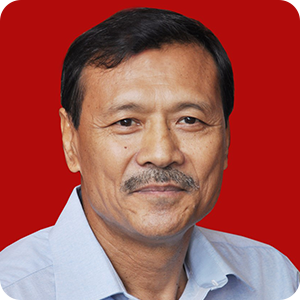Women in Western countries often struggle to find the balance between their career, family, and education. However, at the same time on the opposite side of the world, Afghan women are facing unimaginable challenges to access their right to education and to work. At the end of 2022, the Taliban, who gained absolute power in the country earlier that year, banned women from university education and from working in local and international non-governmental organizations. We discussed the consequences of these decisions with several international development aid experts from Afghanistan and beyond. Check their opinions below.
Key Takeaways:
- In December 2022, Afghanistan’s Ministry of Higher Education issued a letter to all state and private universities in the country confirming the Taliban rulers’ order to ban Afghan women from accessing higher education.
- This decision follows a series of restrictions banning women from accessing parks, gyms and public baths in the capital of one of the largest Asian countries.
- A similar decision – banning girls from attending schools – was taken during the Taliban rule of Afghanistan during 1996 – 2001.
- “Banning girls’ access to education means taking the country back to the stone age” – experts questioned by DevelopmentAid predict significant consequences of the ban in the long term, especially at the economical level.
DevelopmentAid: What are the greatest consequences of the Taliban’s ban on education for women and girls in Afghanistan?

“The ban on girls’ education by the Taliban regime will have a devastating and crippling impact on Afghanistan’s social, health, and economic fabric. It will trigger mass emigration from Afghanistan as many families leave the country to find places where their kids can access education. On the other hand, the already unstable health sector will suffer a huge blow as doctors, nurses, and other healthcare professionals will leave Afghans without care. The maternal mortality rate will skyrocket as financial and human resources are drying up. Nothing can substitute the lack of female healthcare professionals. Additionally, barring girls and women from education means barring them from the labor force, which will consequently cause the decline of the GDP and overall economy, resulting in further poverty and hunger. In sum, banning girls’ education means taking the country back to the stone age.”

“Today, a huge number of Afghan women are actively working in most sectors of the economy as doctors, lawyers, teachers and other skilled workers. This intellectual potential, so necessary for the stable political, economic and cultural development of Afghanistan, may be irretrievably lost. The United Nations Development Program made a very troublous conclusion in one of its reports that restrictions on working women could cost the Afghan economy up to US$1 billion, or 5% of its yearly GDP. If the Taliban does not reverse this decision in the near future, then with a high degree of probability it can be assumed that in 10 years, Afghanistan will face a shortage of qualified personnel in political and cultural life, as well as in most sectors of the economy. In the background, the degradation of political, economic and cultural life will take place, which will ultimately lead to another increase of tension in Afghan society, an intensification of the elites’ battle for power and influence in the country, and the strengthening of the process of fragmentation of the Taliban along ethnic and geographical principles. Such a prospect for the future development of Afghanistan should not give the international community grounds for inaction.”

“I think the consequences of this decision will be severe and have a ripple effect, limiting women’s access to the labor market and daily life. Representatively, a parliament with 27% of members being women, a provincial council with 25% women, and a Community Development Council where women played their role at community level decisions with a 25% quota, are all gone. They have each gone one after another since the Taliban retook Afghanistan. We can witness how a male dominant society has already turned into a womanless ghost town. Economically, women labor participation had been increasing since 2001 from almost 15% in 2001 to 22% in 2021 (according to the International Labor Organization). They were employed as police officers, engaged by the army, and became teachers and civil servants. Women were still allowed to work in a few sectors, such as health and education, with strict restrictions on their rights on what to wear. In the remaining sectors, women have been eradicated. This has a huge impact on an already chaotic economy. The United Nations and SIGAR (Special Inspector General for Afghanistan Reconstruction) have warned that restrictions on women’s involvement in public life will cost up to 5% of the country’s GDP. A traumatized GDP which is yet to cover from the COVID-19 pandemic and the collapse of the republic contracted by 20% to US$16 billion from a nominal US$20 billion in 2020; a further 5% drop caused by eliminating women from economic activities represents a shock for the country. The recent ban on women’s education will further worsen those figures.”

“One of the biggest consequences of Afghanistan’s Taliban ban on education for women and girls will be that the country will remain an inhumane, rightless, back-ward, aloof, and disempowered country. Many studies have revealed that low educational attainment for girls can also weaken solidarity in communities, and reduce women’s participation in society which will further weaken their basic rights. At the national level, the lack of education for girls leads to substantial losses in national wealth – human capital/wealth which is the critical resource required for national development. This is an unbelievable situation for a country that exists in this era.”

“Restricting girls’ access to school is already causing harm. With girls prevented from continuing their education, many families are already marrying off teenagers to shift their support to husbands. Women’s roles have been undermined and women are being deprived of their dignity, rights and status at home and in society. If the ban on girls’ education becomes permanent, this would eventually exclude women from all sectors of society, under the cover of religion. The Taliban has allowed female teachers, nurses, doctors, and some civil servants to continue working but without receiving higher education, the pipeline of educated women to fill these jobs will run dry.”

“Depriving Afghan girls of higher education and lifelong skills is a generational setback and will bite back with societal, family, economic, and political costs and consequences for and beyond Afghanistan. An individual is a basic unit of all social and political construction and the denial of a fundamental right of an individual to develop his/her personality has consequences. Education is a weapon to overcome ignorance and fear – the very goal of religions and the Universal Declaration of Human Rights (UDHR), 1948. Respect for the UDHR is the responsibility of communities, groups and states irrespective of de jure or de facto status. The decision will bring heavy costs for the state, regional areas and globally. The state will fail in its basic purpose of lifting people from poverty and leading them to the path of peace and development. Globally, the decision will pull us back on the 2030 Agenda for Sustainable Development Goals, particularly in achieving Goals 4 and 5. The people of Afghanistan are part of the United Nations community. The concern of equality of men and women is settled for all time in para 2 of the preamble of the Charter of the United Nations. The de facto powers are either ignorant or self-complacent. The people, the private sector and the international community must unite to raise these concerns at their respective levels and make sure the Taliban regime feels the pinch.”

“It will definitely hamper the human rights and national interest of any country including Afghanistan. It will create social inequality and deprivation from every opportunity in life for Afghan women. Moreover, it will lead the nation to back-step to the generation gap and ultimately will affect humanity. Getting education is one of the fundamental human rights and a sense of dignity for all, disrespecting any gender disparity.”
DevelopmentAid: What should the international community do to help restore women’s rights in Afghanistan?

“As Dr. Martin Luther King said: “Injustice anywhere is a threat to justice everywhere. We are caught in an inescapable network of mutuality, tied in a single garment of destiny. Whatever affects one directly, affects all indirectly”. Supporting the people, especially the women of Afghanistan, is a shared and moral responsibility of the international community. The international community must sanction the Taliban regime and stop funding them under the humanitarian assistance program. The weekly US$40 million provided by the international community as humanitarian assistance only empowers the Taliban regime. The international community should also sanction those countries supporting the Taliban and those that have provided safe havens during the past 20 years. The international community should mobilize resources and provide online education to Afghan girls. Free internet and online education are a much-needed investment for the future of Afghanistan. They are much cheaper options than providing millions of dollars to the Taliban under the humanitarian assistance program.”

“From the first day the Taliban came to power, the international community was skeptical about their assurances of “moderation” in political, economic and cultural activities, including the implementation of a policy towards women. The decision of the Taliban to ban women from receiving education did not come as a surprise to the international community but was expected. This step clearly demonstrates that the Taliban did not ever consider changing and continued to implement their policy towards women according to strict Sharia rules, reducing their role exclusively to taking care of husbands and children. So, expecting a “moderate” Taliban action is a delusion. The international community needs to continue to work with representatives of the authorities and the clergy of Afghanistan in the political, economic, cultural and clerical fields and convince them to reconsider the restrictions on women in the field of education in accordance with the moderate principles of Islam, to seek common ground and compromises to resolve this issue. Pressure or sanctions against the Taliban will not generate positive results, on the contrary, they may worsen the already difficult situation of women in the country. This is very complex, slow and lengthy work which should be carried out via diplomacy on the principles of trust and mutual respect.”

“The international community has a set of instruments, such as official recognition, counterterrorism initiatives, humanitarian aid, Afghanistan’s foreign reserves, and sanctions, that can be used as potential means to interact with the Taliban. No country has recognized the Taliban, which however continues to abuse human rights. Their tier-one leadership is sanctioned and yet, with the UN’s travel ban in place, it seems business as usual in Kabul. The country’s reserves have been frozen since August 2021 with the Taliban having no access to this and yet there is no hope of seeing a change in the Taliban’s behavior. Humanitarian aid is complex. The aid is essential for preventing hunger and famine and basic service delivery, but yet those packages of US$40 million on a weekly basis end-up with the Taliban Central Bank. I think it will be a matter of time and events similar to 9/11 that will change everything.”

“The international community must make recognition of the Taliban contingent on their track record on responsible and inclusive governance. Legitimizing the Taliban should be conditional and subject to positive change in its behavior and policies. A clear, firm, and coordinated message should be given to the Taliban that, if girls are not allowed access to equal and quality higher education, the international community will limit funding for the education sector. Islamic scholars, leaders and influential figures must condemn the Taliban’s decision to ban secondary education for girls and engage with the Taliban to influence or reverse their destructive policies. UN bodies, such as UNICEF and UNESCO, must engage in dialogue with the Taliban authorities and ensure Muslim scholars from Afghanistan and other countries are present in the dialogue to make the Taliban understand the importance of girls’ education in Islam. To ensure that the Taliban’s recent policy does not significantly disrupt girls’ learning, international organizations present in Afghanistan must provide girls with the instructional materials needed to continue their studies in an equivalent manner as boys until the Taliban reopens schools for girls.”

“If dialogue fails, the regional powers and international community may consider diplomatic, economic and political measures against the Taliban leaders. Depriving women and girls of the fundamental right of access to education and individual development is a clear violation of the UNHR with far-reaching regional and general consequences. It would be a challenge and ultimate threat to the very determinations and principles of the United Nations as to equal rights for men and women, and to promote social progress and better standards of life for freedom. The international community must unite to maintain peace and take the necessary steps and could consider employing an international security mechanism in Afghanistan for the promotion of the economic and social advancement of all people including action under Chapter VII of the Charter of the UN.”

“The world community, especially UNICEF and UNESCO, has the mandate to conduct discussions with the Afghan Taliban Government to make sense of the gender disparity in fundamental human needs such as food, shelter, health, WASH and education. Both UNESCO and UNICEF can initiate a series of meetings with the Afghan Government in the presence of a number of International Muslim Scholars and Educationists to find a conclusive solution to the crisis through a mutual understanding. At the same time, any international funding to Afghanistan should be conditional upon allowing Afghan women and girls to access higher education and health services equally.”
Want to bring your own contribution to Afghanistan’s development? Check out more than 100 job opportunities in the international aid sector in Afghanistan, available on DevelopmentAid. Filter the opportunities by sector, donor, and period. Become a DevelopmentAid member to access all the information you need in order to apply and land the job you desire!

